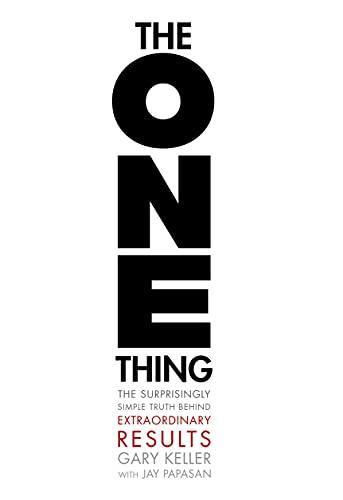As I enter my 40th year of coaching I love to look back on the lessons learned. I always say that one thing I have more of than most coaches is experience. I'm a part of the first generation of strength and conditioning coaches. We were young men who went to college and eventually entered a profession that we didn't even realize existed when we started college.
One of my most popular articles was 25 Mistakes, 25 Years. I won't rewrite that, I'll simply add fifteen more made these last fifteen years. In 25 Mistakes I focused on a combination of coaching mistakes and personal failings. I will do the same here but in reverse order. In 25 Mistakes I focused on coaching first personal second. I could almost make that Mistake 26.
Mistake 26 - Being Afraid to Talk About Myself and My Journey
I've always been comfortable talking about strength and conditioning but, have never been comfortable telling my own story. In 2018 Chris Poirier asked me to be the keynote speaker at that summers Perform Better Summit's. I decided that I would try to help coaches by being honest and authentic. I was petrified to do the first talk. To make a short story shorter, I shared my struggles, 10 years as a bartender, marriage counseling to save my marriage, self doubt and self help. Thankfully the talks were a success and the feedback was great. The lesson? People love stories, especially those with happy endings. Don't be afraid to share yours.
Mistake 27 - Being Afraid to Talk About My Father
This one might seem strange but, my dad was a larger than life character who cast a pretty big shadow. Often I felt that talking about him would sound like bragging. He was a World War 2 veteran and a Hall of Fame Football player at Boston University whose name now sits on the front of my high school building. Why didn't I want people to know that? Why did I think a 60 year old who was proud of his nearly 100 year old dad was weird? I'm not sure but again, writing saved me. I realized my dad didn't really exist in the internet age. He had close to zero digital footprint. I wrote an article called An Extraordinary Ordinary Man in 2020 and made sure my dad had a place in digital history. The lesson? Be proud of your roots, no matter how humble.
Mistake 28 – Thinking I Had the Parenting Thing Figured Out
One piece of advice. Never say never. Kids are the greatest gift and the greatest test. Raising kids in a prosperous home is a classic first world problem. It's so easy to sit on the sidelines and criticize parents. It's really tough when you have skin in the game. Our kids have been life's greatest gift but, parenting can be a challenge. I have done many things I said I'd never do and many things I probably criticized other parents for. My advice is to be careful with opinions about situations you have never been in.
Mistake 29 - Thinking I Knew How to Coach Kids
You wont know how to coach kids until you coach your own kid and their friends. Much like the parenting thing above, life is so easy when it's someone else's kid. As my own kids came of age in the gym I began to see things through a very different lens. Over time I saw our business as a parent and not as a coach and, that helped us to improve our business. Over the last few years we have been really judicious about how much conditioning we do. There's a big difference between hearing a kid describe how many games they played over the weekend and, being at those games. One thing I realized is that the conditioning bucket can get filled really fast and that overuse is the weekend enemy in youth sports.
**Youth Training Compilation**
Mistake 30 - Thinking My Body Would Last Forever
People say stuff like “wait until you hit 40”, “wait until you hit 50”. Well, I have some bad news. 60 was tough. In the sixth decade the simple stuff that I could always seem to demo at will started to get tough. Suddenly single leg hop and stick not only wasn't easy but was something I avoided. Trust me, Father Time is undefeated. You can't roll back life's odometer. The life of an aging coach is about continuing to accept what you can no longer do. Don't give up but remember that rolling and stretching must literally be an every day thing if don't want to limp around. I can remember hearing a friend talk about looking for a retirement home that featured one floor living and laughing. Now I get it. Stairs in the early AM are no fun in your sixties.
Mistake 31 – Getting Conned By Drug Users
This should have been in the first article. One of the great lies in strength and conditioning is that ______ program works. I can tell you something with 100% certainty. If the person telling you a program works has used performance enhancing drugs, that person has no idea if the program they advocate works. I want programming advice from clean athletes or, from the coaches of clean athletes. My generation grew up on muscle magazine programs written by steroid users. We didn't realize it at the time but, as I coached more, things just didn't add up. Want to get stronger? More sets didn't seem to solve the problem. Want to get bigger, “hypertrophy” work didn't seem to solve the problem. Now we talk about things like “minimal effective dose” loading, “micro-dosing” etc. Trust me, getting big and strong is not easy.
Mistake 32 - Not Reading "The One Thing" sooner
Authors Gary Keller and Jay Papasan ask you to find “the one thing, that by doing it, would make everything else easier”. When I realized staff training was my One Thing, everything I did become easier. Staff training allows exponential growth. It doesn't matter how good you are, you will only impact a certain number of people. A great staff can impact hundreds of people every day, even when you are not present.
Mistake 33 - Not Truly Understanding Speed
I love the quote “its what you learn after you know it all that really counts”. I had the “speed thing” wrong for a long time. Tony Holler's Feed the Cats articles made me a better coach. Timing changes everything. Trust me. We rarely timed. Probably out of combination of laziness ( setting up the timers took time) and fear ( worrying about hamstring pulls). Now we time twice a week, every week. Game changer.
Mistake 34 - Thinking You Could Improve Speed in the Weightroom
As strength and conditioning coaches we want to believe what we do matters. Trust me, I think strength training is important. It's important for helping athletes get larger which really helps in collision sports. It's important for injury prevention. What it doesn't seem to be that important for is speed development. All you need to do is go look up “Usain Bolt Strength Training” on Youtube and you'll quickly understand that the worlds fastest human's speed was not created in the weightroom. The videos look like my friends at the Y in the 1970's. Want to get fast? You need to practice running fast.
Mistake 35 - Overvaluing Conditioning
I wrote an article about being too influenced by American Football. Football coaches, and by extension football strength coaches, have really pushed the narrative that you can develop mental toughness with hard conditioning. I think there may be a shred of truth there but, we have been so far over the top, it's just stupid. Some coaches doubled down on dumb with military style conditioning and sadly ( no exaggeration) some athletes died. We do much less conditioning now and are much more focused on “what else” athletes are doing. Football players doing 7 v 7 twice a week are getting tons of conditioning. They wont need much else. We go back to our “bucket analogy” and try to think about what buckets are full. My advice is “don't fill full buckets” and “don't worry about who filled the bucket”, just recognize that it's full.
Mistake 36 – Chasing Strength for Too Long
As a college strength coach we had to chase numbers. The sport coaches we were responsible to wanted constant improvement. As a result, we chased 5 lb increases in the bench press and 10 lb increases in the squat in order to show that our program worked.
Unfortunately, we probably wasted hours of time pursuing small gains. If I had to do it over again I would monitor bodyweight, vertical jump, and linear speed. I'd be looking at Lewis or Sayers Formula and Sprint Momentum to really gauge the effectiveness of my programs.
Bigger people moving faster or jumping higher is real progress. Increased size or strength is the means, not the end.
Mistake 37 - Needless Worry
“85% of what we worry about never happens”
“I have worried about many things, some actually happen”
I'm consumed by worry at times. I think maybe it's the price you pay for success. I'd love to really not care about every little thing. Getting older and more financially secure has helped but, I don't think I'll ever truly stop caring what people think. I'll probably just let it effect my day-to-day less.
Mistake 38 - Thinking I'm the Only One With Imposter Syndrome
“a psychological pattern in which an individual doubts their skills, talents, or accomplishments and has a persistent internalized fear of being exposed as a "fraud".
Yes, I still have those dreams. Dreams where I get “found out”. 62 years old and still worried that I might not be good at my job.
Mistake 39 - Procrastination
As I get older my urgency to complete tasks get less and less. This article has taken way too long to finish!
Mistake 40 - Not “beginning with the end in mind”
Stephen Covey exhorted us to “begin with the end in mind”. As I get towards the end of my career I'm not sure I see the end. Do I just fade into the sunset? Do I take long walks and read more books? Or, is this more needless worry.
Read Coach Boyle's Original Article: "25 Mistakes, 25 years"

